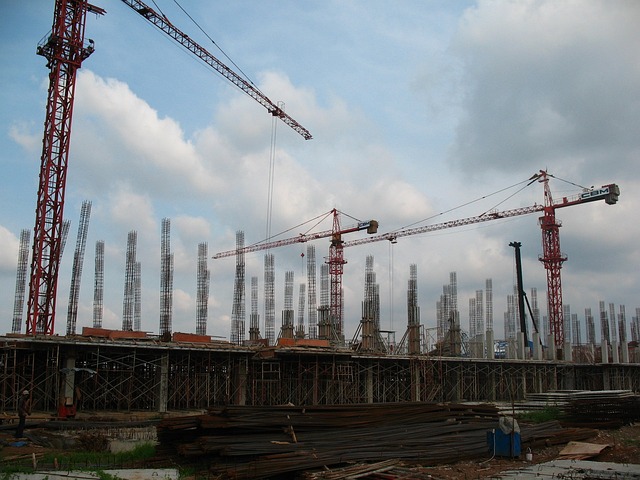Contractor financing for home improvements encompasses a variety of options including traditional bank loans, which are tailored for the construction and renovation sectors, offering structured repayment plans aligned with project timelines. Beyond these, contractors can explore innovative alternatives like equipment financing, invoice factoring, business credit cards, hard money lenders, and private investor partnerships, each designed to meet different financial needs within the industry. Hard money loans are particularly useful for those who may not qualify for traditional bank loans, offering quick funding based on project profitability rather than credit history. Additionally, government-backed and local incentive programs provide financial assistance or tax benefits to support home improvement projects, helping contractors manage costs effectively and offer competitive pricing. Contractors should carefully assess their options, considering factors like interest rates, fees, repayment terms, and credit score implications, to select the most suitable financing instrument for their specific project requirements and business goals, ensuring sustainable growth in the home improvements sector.
contractor financing home improvements can be a complex landscape, with various funding avenues available. This article delves into the nuances of securing capital for contractor projects, particularly in the realm of home renovations. We’ll explore traditional bank loans as a starting point before shifting focus to alternative financing solutions, including hard money lenders and private investors. Additionally, we’ll navigate the intricacies of government-backed programs and local incentives designed to support both contractors and home improvement endeavors. Understanding these options is key for contractors aiming to fund their projects effectively.
- Understanding Financing Options for Contractors Engaged in Home Improvements
- The Role of Traditional Bank Loans in Funding Contractor Projects
- Exploring Alternative Financing Solutions for Contractors: From Hard Money Lenders to Private Investors
- Navigating Government-Backed and Local Incentive Programs for Contractors and Home Improvement Projects
Understanding Financing Options for Contractors Engaged in Home Improvements

Contractors specializing in home improvements have a range of financing options at their disposal to fund projects and manage cash flow effectively. These financial tools are designed to cater to the unique needs of contracting businesses, from short-term projects to long-term expansions. Traditional bank loans and lines of credit remain popular choices, offering predictable repayment terms and fixed interest rates. However, alternative financing solutions like equipment financing, invoice factoring, and business credit cards can also provide the necessary capital without tying up essential assets. Each option comes with its advantages and considerations; for instance, equipment financing can be particularly beneficial if the project requires purchasing specialized tools or vehicles. Invoice factoring, on the other hand, can offer quick access to funds by advancing payment on outstanding invoices. It’s crucial for contractors to assess their specific financial needs, project timelines, and cash flow projections when selecting a financing option. By understanding the various financial instruments available through contractor financing, home improvement professionals can make informed decisions that support business growth and operational efficiency. Contractors should consider factors such as interest rates, fees, repayment schedules, and the impact on their credit score before committing to any financing agreement. With a comprehensive grasp of these financing options, contractors can confidently navigate the financial landscape and secure the capital needed to execute high-quality home improvements.
The Role of Traditional Bank Loans in Funding Contractor Projects

Traditional bank loans remain a cornerstone in securing funding for contractors undertaking home improvements. These financial institutions offer a range of loan products designed to meet the capital needs of professionals in the construction and renovation sectors. For contractors, accessing favorable terms is pivotal, as it allows them to manage cash flow and execute projects efficiently. Bank loans provide a structured repayment schedule that aligns with project timelines, ensuring financial predictability for both the contractor and the client. The due diligence process involved in obtaining these loans often mandates a thorough assessment of the contractor’s track record, financial health, and the potential project’s viability. This scrutiny serves as a safeguard for the lender and can lead to more robust and sustainable financing solutions that bolster the growth and stability of contracting businesses in the home improvements market.
Furthermore, the relationship between traditional banks and contractors is symbiotic; banks offer the necessary capital, while contractors bring expertise and labor to realize property enhancements. The funding from these loans enables contractors to procure materials, hire skilled workers, and manage the various phases of a home improvement project effectively. By leveraging the stability and reliability of traditional bank loans, contractors can navigate the financial complexities of their projects with greater confidence, ensuring that they can deliver quality results and maintain a competitive edge in the home improvements landscape.
Exploring Alternative Financing Solutions for Contractors: From Hard Money Lenders to Private Investors

Contractors seeking financing for home improvements have a variety of alternative solutions beyond traditional banking channels. Hard money lenders represent one such alternative, offering short-term loans typically backed by real estate or equity. These lenders assess the potential profitability of a project rather than an individual’s credit history, making them an attractive option for contractors who may face challenges in securing bank financing. The terms and conditions are often more flexible, with funds available swiftly to capitalize on time-sensitive opportunities.
Another avenue for contractor financing is engaging with private investors. These individuals or entities are interested in funding home improvement projects in exchange for a share of the project’s profits or a fixed return on investment. This option can be particularly advantageous for large-scale renovations or unique construction projects that present higher returns but may not meet the criteria of conventional lenders. By partnering with private investors, contractors can access the necessary capital while retaining operational flexibility and control over project decisions.
Navigating Government-Backed and Local Incentive Programs for Contractors and Home Improvement Projects

Contractors looking to finance home improvement projects have a range of options that can be significantly enhanced by exploring government-backed and local incentive programs. These programs are designed to encourage investment in property upgrades, offering financial support or tax incentives that can lower the overall cost burden for contractors. By staying informed about available grants, low-interest loans, and tax credits specific to their region, contractors can navigate these resources effectively to secure funding for their projects. These initiatives not only aid in cash flow management but also enable contractors to offer competitive pricing to clients seeking quality home improvements without the immediate financial strain. It’s crucial for contractors to research and understand the eligibility requirements and application processes for these programs, as they can vary by location and project scope. Engaging with local government offices, participating in community development initiatives, or consulting with finance professionals familiar with these incentives can provide valuable guidance in securing the necessary financing for successful home improvement projects.
Contractors specializing in home improvements have a multitude of financing options at their disposal, each with its unique advantages. From traditional bank loans to alternative solutions provided by hard money lenders and private investors, as well as government-backed incentive programs, there is a path for every project’s needs. It’s clear that securing the right funding is pivotal for contractors to execute high-quality home improvement projects efficiently. Understanding these options allows professionals in the field to navigate financial challenges with confidence and adaptability, ensuring they can deliver exceptional results for their clients. Contractor financing remains a dynamic and evolving landscape, essential for the growth and success of home improvement endeavors.
